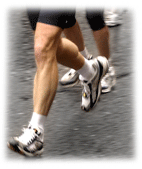
This article was last updated on April 16, 2022
Canada: ![]() Oye! Times readers Get FREE $30 to spend on Amazon, Walmart…
Oye! Times readers Get FREE $30 to spend on Amazon, Walmart…
USA: ![]() Oye! Times readers Get FREE $30 to spend on Amazon, Walmart…
Oye! Times readers Get FREE $30 to spend on Amazon, Walmart…

It’s important to warm up before exercise, but don’t forget to cool down too – it’s just as important. If you stop abruptly, blood and tissue fluids can remain trapped in muscles, preventing metabolic wastes and lactic acids from being flushed from the system and leaving you stiff.
Sleep might just seem like lying down, but a good sleep pattern benefits not only your exercise regime but your health in general. Most people need around 7 hours of sleep per night, getting maximum benefit from a regular sleeping pattern (going to bed and waking up at the same time each day), as your body can regulate itself efficiently. Sleep is a time of rebalance, allowing physiological and psychological rest as well as letting the body redistribute fluids and salts. It is claimed by some doctors that the human body can survive longer without food than it can without sleep.
If you’re starting weight training, it can be more beneficial to break your workouts down into smaller, focused workouts, toning and strengthened certain muscle groups each day. This allows each group a decent bit of attention and is even suitable for hectic lifestyles, as well as giving your muscles time to recover if you cycle your regime. Ensure you rest properly as part of your regime – this is when the body actually undergoes most adaptation, and means next time you work out, you’ll be ready and limber.
Make sure your diet gives you enough energy, protein and vitamins, as well as plenty of water. It is recommended that you visit a doctor before you embark on any major physical regime. Finally, don’t expect results overnight – resistance training can make fundamental differences to your body and shape, and this should take time. However, with enough time spent regularly and safely, effects are usually noticeable within a matter of weeks.
Beware of over-training. Less is often more, and if you drive yourself into the ground you can do yourself more harm than good. If your resting pulse is unusually high or you find yourself getting tired when you didn’t before, you should ease down your regime. What’s more, over-training can put you off exercising and dampen your enthusiasm – a little abstinence can strengthen your resolve, as long as it’s done for the right reasons. It’s rebalance, as opposed to complacence.
While regularity can help with your routine, it can bore those who yearn excitement – so why not shake things up for a bit of a variety in your workouts? Mixing things up can avoid reaching plateaux and make workouts more enjoyable. Try the following tips to add a little spice:
- Incorporate dance workouts or salsa lessons into your work and burn the calories as you cha-cha-cha the night away!
Swap resistance training with stretching exercises, yoga or Pilates - Start learning tai chi for elegance and grace
- Swap a cardio gym session with an hour in the pool, or vice versa
- Alternate your resistance training to focus on different muscle groups – this allows each group more time to recover.
- Try something different – take up a martial art, boxing, spinning or something you’ve never even heard of (although a bit of research is recommended!)
Sports drinks can aid your workout as they are designed to provide sufficient energy and hydration to allow you to train harder and for longer. An effective drink will be isotonic (consisting of the same mineral balance as the water your body requires) and replace the carbohydrates, water and salts lost during exercise. Some points to consider are:
- Sports drinks should ideally contain between 6-8% sugar; more than this can cause nausea, cramps and diarrhea, while 5% or less may not provide enough energy to keep you going that extra distance.
- Fruit juices are typically 10-15% sugar and should therefore be diluted; try diluting one part juice to seven parts water.
- Fruit juices also provide vitamins, which are useful for daily nutrition but specifically for sport – you don’t sweat out vitamins so they don’t need to be replaced.
- Carbonated drinks cause bloating – dilute them with still mineral/filtered water to half their strength.
- Sodium and potassium salts are key to isotonic drinks as these are the major ones sweated out during exercise. The sodium concentration of sports nutrition supplements (including sports drinks) can range from around 40-100mg/100ml.
- Sports drinks are not strictly necessary for exercise less than an hour, but for intense exercise or sessions over 1 hour, sports drinks will provide a benefit.
- You can make your own isotonic drink very cheaply – simply add the juice of half a lemon, one level teaspoon of sugar and half a teaspoon of salt to a pint of luke-warm water and sip quickly.
- Cold water/drinks are refreshing during/after exercise, but lukewarm water can sometimes prove a better choice as they are less of a shock to the system.
You can publish this article on your website as long as you provide a link back to this page.

Be the first to comment